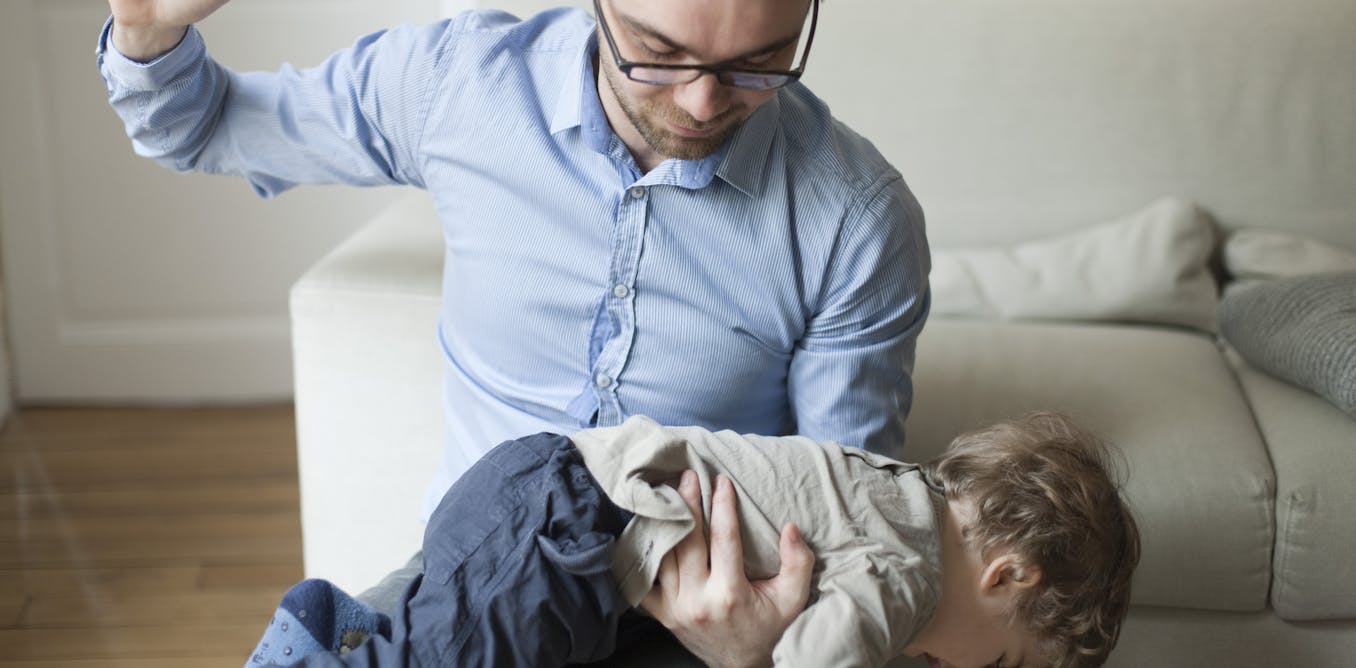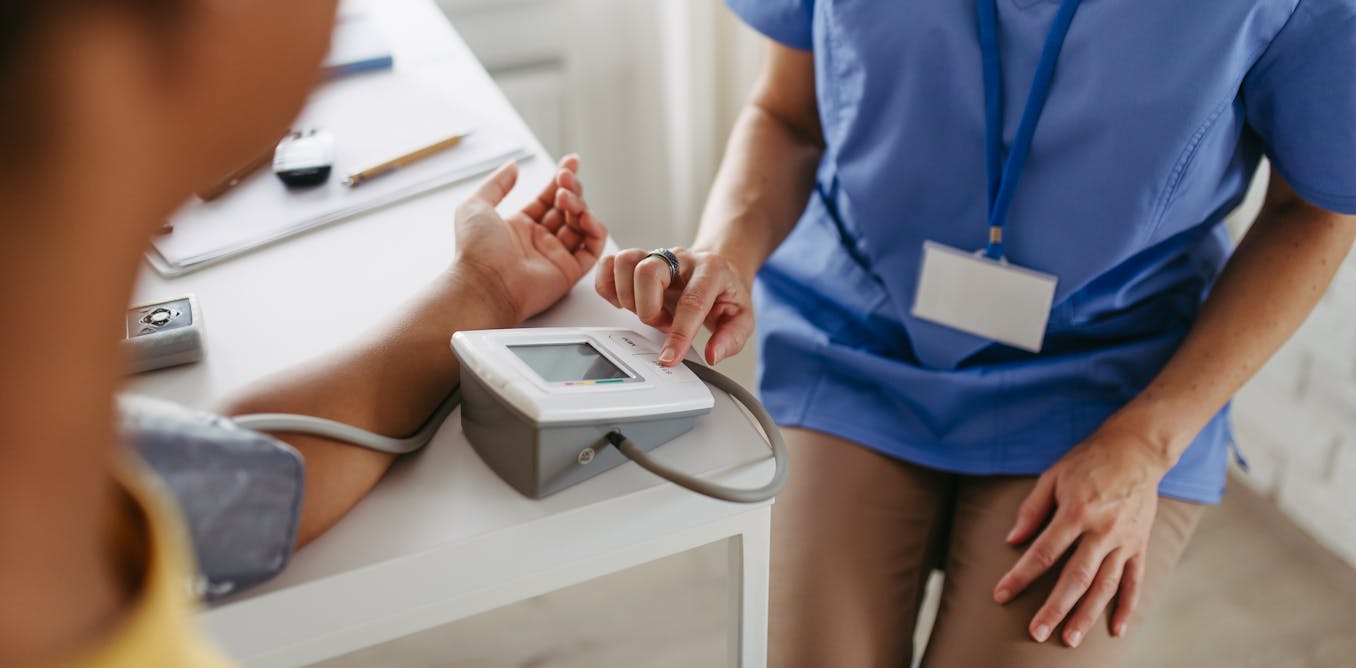ONE day, Shannon Dunbar-Dawe, a self-proclaimed “massive foodie,” suddenly found herself unable to eat a single thing.
“It was really scary – I just woke up one day and never felt well again”, the 30-year-old, from Glasgow, Scotland, said.
10

10

10
For years, doctors dismissed her symptoms as anxiety or an eating disorder.
That was until she was diagnosed with an incurable condition that meant she could only be fed through a tube.
When Shannon first developed bloating and nausea in May 2022, she thought it might be due to drinking too much coffee.
She could barely eat more than a couple of digestive biscuits each day without looking “six months pregnant” from the swelling.
Read more on gastroparesis
“I could eat literally one bite of food, and it would feel like I’d eaten an entire buffet,” the former accounting student explained.
She added, “I had pain, this horrible burning in my stomach, and lots of bloating.”
Uncertain about the cause, she initially thought it was related to her acid reflux.
“The pain was right in my stomach, kind of in my sternum area.”
Despite being a “massive foodie,” Shannon continued to find herself unable to eat.
Within just six months, Sharon lost half her body weight. Dropping from a “healthy” size 10-12, weighing 64kg, to just 24kg.
As her pain worsened, she took herself to the hospital, where she spent ten days – but was sent home with no answers.
“They initially thought I had gastritis, inflammation of the stomach,” she said.
“But they didn’t run any tests to check, so they were just going off the information they had.”
“I didn’t eat anything the entire time I was in the hospital. It was horrendous.”
Shannon was told she would receive an endoscopy in the coming months, but in the meantime, she spent “morning until night” hunched over the toilet due to nausea.
“I’d take my laptop to the bathroom and just watch stuff and sit there. That was my life.”

10

10

10

10
Just two biscuits per day
As the pain continued, Shannon had to quit her studies. “I had no brain power from not eating,” she explained.
When her symptoms worsened further, she was referred to a gastroenterologist in May 2023, but was misdiagnosed with an eating disorder.
“I was surviving on two or three digestive biscuits a day and some coffee. It was horrible,” Shannon recalled.
In May 2023, a CT scan of her abdomen showed nothing unusual.
“They told me, ‘You’re a young woman, you have anxiety, this is just anorexia, you’re doing this to yourself.'”
By July, she was back in the hospital, unable to keep anything down —not even liquids.
“The first thing they did was send in a psychiatrist,” she said.
“They put me on a mental health hold for two weeks. I was watched 24/7 and couldn’t even go to the bathroom in peace,” she added.
During this time, Shannon was force-fed foods she said she couldn’t tolerate, including curry and chilli.
Gastroparesis: Everything you need to know
Gastroparesis affects the normal movements of muscles in the stomach, preventing it from emptying properly.
It affects more than 1.5 million people in the US to some extent. Up to four per cent of people suffer in the UK.
Due to the condition affecting digestion, it can cause nausea and vomiting, as well as problems with people’s blood-sugar levels and receiving adequate nutrition.
Other symptoms may include:
- Feeling full after a few bites of food
- Acid reflux
- Abdominal bloating and pain
- Weight loss
- Lack of appetite
Gastroparesis can occur as a complication of diabetes, or after surgery or an infection.
It is believed to be caused due to damage to a nerve that controls stomach muscles.
Certain medications, such as antidepressants or pain relievers, can slow gastric emptying and cause similar symptoms.
Complications can include severe dehydration from vomiting, malnutrition, a reduced quality of life and undigested food hardening in the stomach, which can be life threatening.
There is no cure. Treatment focuses on dietary changes, such as eating smaller meals more frequently and chewing thoroughly.
Medications can help to ease nausea and vomiting.
Surgery to fit a feeding tube may be required if patients are unable to tolerate any food or liquids.
Source: Mayo Clinic
“I’m lactose intolerant, but they gave me things with milk and cheese.
“No one would listen to me. I spent two weeks crying alone in a hospital room.”
She describes those two weeks as the “worst” of her life.
“I can’t even begin to describe how horrendous it was. I lost even more weight while I was there.”
‘There’s no cure’
In July 2023, she decided to consult a private gastroenterologist, who diagnosed her with gastroparesis.
The rare condition paralyses the stomach’s nerves and muscles, slowing digestion, and the cause is often unknown.
“I literally cried during the appointment because someone was finally listening to me. It was such a relief.
“There’s no cure, and treatment options are extremely limited.”
After medication to speed up her digestion didn’t work, Shannon had a feeding tube surgically placed in her stomach, which she uses to run a feed every night.
“The surgery was excruciating, the most painful thing I’ve ever been through.
“It’s strange having a foreign object sticking out of you 24/7. It still comes with issues: nausea, bloating, discomfort, acid reflux. It’s not a walk in the park.”

10

10
For the past year, Shannon says her life has been quiet. “I spend most of my time curled up on the couch in pain, feeling sick.”
‘Being so underweight has been horrible’
Her sister, Charelle Dunbar-Dawe, 31, set up a GoFundMe to help Shannon afford a gastric pacemaker, a medical device to improve gastric emptying.
The device is currently unavailable to non-diabetic patients on the NHS.
The page aims to raise £50,000 for the surgery.
“If I can control my nausea and vomiting, my quality of life would significantly improve,” Shannon said.
“I’d be able to gain weight. Being so underweight has been horrible. I’m exhausted all the time and don’t sleep well.
“I’m just miserable. I’m a shell of who I used to be, which is hard not only for me but also for those around me.”
Shannon’s doctor believes the pacemaker could restore some quality of life and might eventually allow her to eat soft foods and liquids, and one day remove the feeding tube.
“Right now, I’m so underweight that I don’t qualify for the pacemaker surgery,” she explained.
“If this had been done when I first started having symptoms, I would have qualified for the surgery straight away and might not have had to suffer unnecessarily for the past two and a half years.
Now, it’s going to be a fight to gain enough weight to meet our fundraising goal.”
A spokesperson for NHS Greater Glasgow and Clyde said, “This patient has raised her concerns through our complaints process.
“Though we are unable to comment on individual cases due to confidentiality, we are sorry we were unable to meet her expectations.
“At all times, the patient’s concerns were taken seriously by the clinicians involved, and attempts were made to resolve them.”

10




